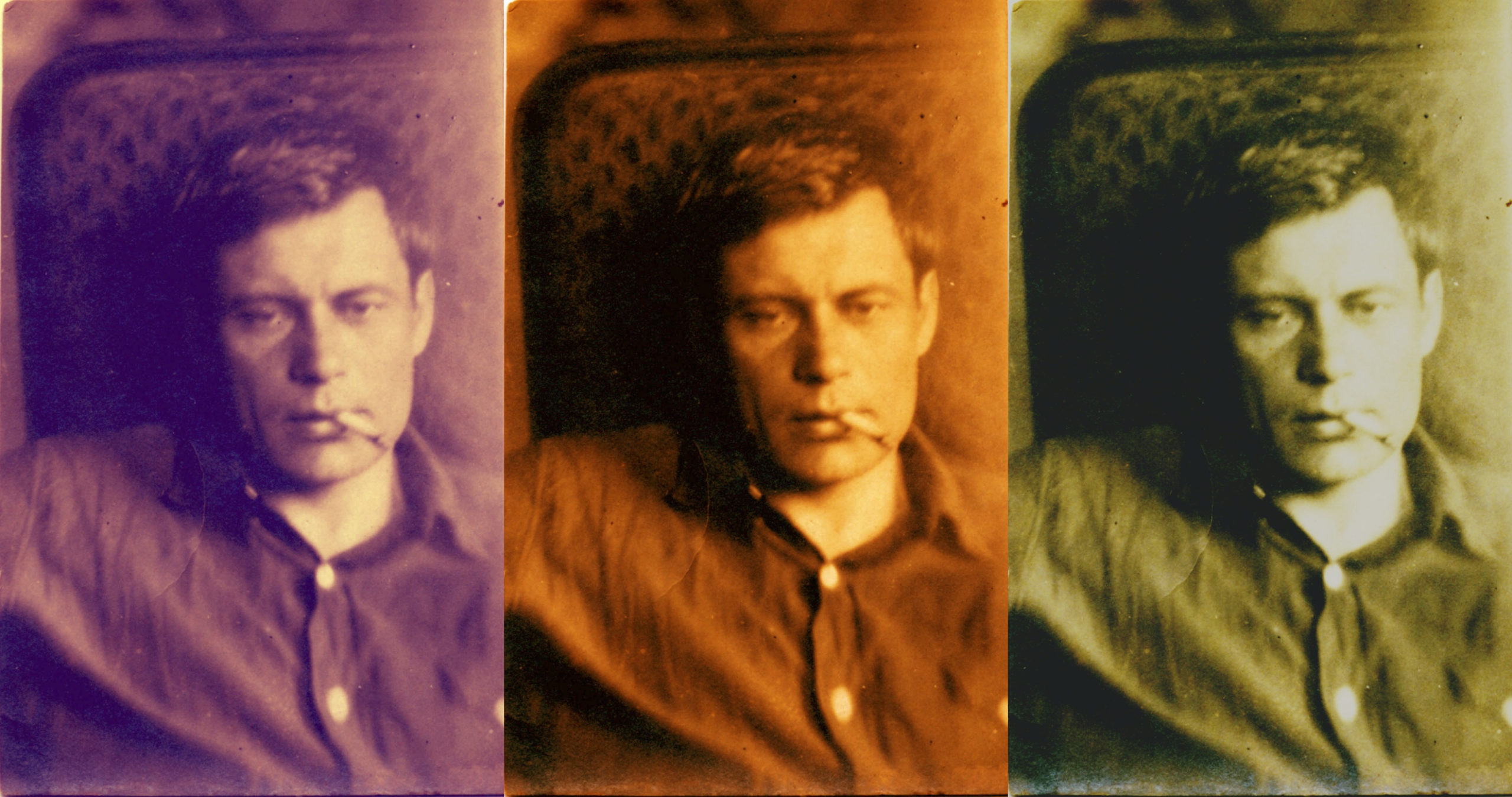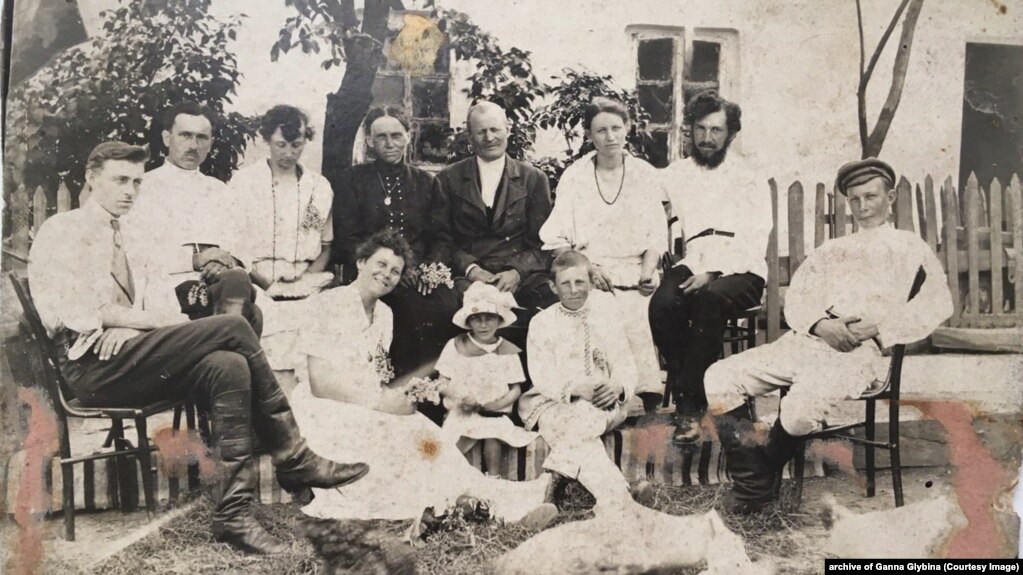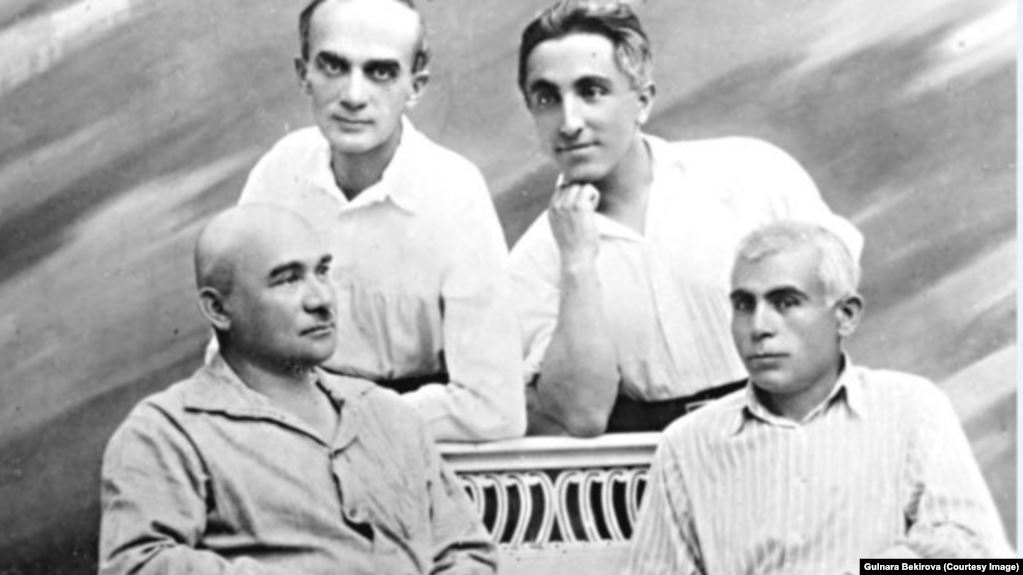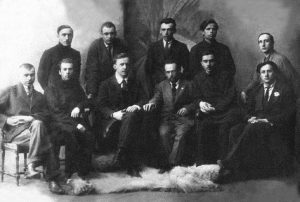
Yohansen was an active member of Hart, an association of proletarian writers founded in Kharkiv in January 1923 by Vasyl Blakytny. Its purpose was “to fight against bourgeois art” and “to attract the proletarian masses to literary creativity”.
He was also one of the founders of the Free Academy of Proletarian Literature, aka VAPLITE (Вільна академія пролетарської літератури).
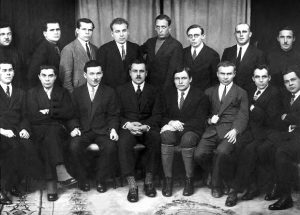
Maik Yohansen was a man of many talents, especially noted for his fantastic knowledge of different languages - English, German, French, Italian, Spanish, Scandinavian, and almost all the Slavic languages. He also knew ancient Greek and Latin. His translations include works of Friederich Schiller, William Shakespeare, Edgar Allen Poe, and many others.
Here is what Ukrainian writer Yuriy Smolych says about Yohansen:
“Once, Maik had to learn Serbian for his work. He and I went to Chez Parfishka to play billiards. While shooting the billiard ball into the pocket, Maik said: ‘After lunch I plan to lie down for an hour and learn Serbian’... Then, in the evening, he sat down to translate some Serbian folk songs and handed over the translation the next day before lunch. As you know, his translations of these songs are among the best.”
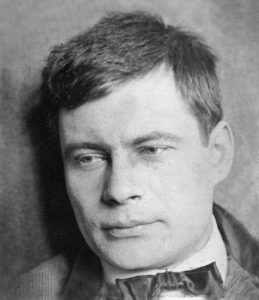
From 1930 to 1937, Yohansen lived in the Slovo House in Kharkiv, built in the 1930s for Soviet writers, poets, and cultural activists. At the beginning of his literary career, he wrote mostly in German and Russian. However, in 1919 he began writing only in Ukrainian, having witnessed the brutality of Russian raids in Kharkiv.
His most famous novel Doctor Leonardo's Travels through the Switzerland of Slobidska Ukraine in 1928, in which he attempted to make landscapes the main protagonist, giving his human characters secondary roles.
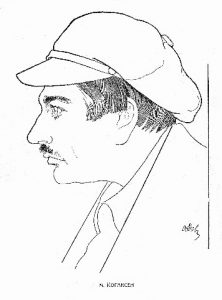
Yohansen was an accomplished screenwriter and author of several scripts for theatrical productions. He and Yuriy Tiutiunnyk worked together on the screenplay for Oleksandr Dovzhenko’s classic Zvenyhora (1927), a silent film that many consider the beginning of Ukrainian national cinema.
Yohansen also collaborated with filmmaker and actor Les Kurbas and his avant-garde Berezil Theatre on several of their productions. Most notably, he was the author of a Ukrainian adaptation of Gilbert and Sullivan’s Mikado and of the 1929 Berezil revue Allo na khvyli 477 (Hello on Frequency 477).
From August 1937 to November 1938, the NKVD launched a number of secret operations throughout the Soviet Union. They were aimed at ridding the country “once and for all of the entire gang of anti-Soviet elements who undermine the foundations of the Soviet State” (in the words of Nikolai Yezhov, the Head of the NKVD).
The National Operations were part of Stalin’s Great Terror or Great Purge (1936-1938). According to centralized NKVD statistics, from July 1937 to November 1938, 335,513 persons were sentenced by extrajudicial organs. Among them, 247,157 (or 73.6%) were shot.
Yohansen was arrested on August 18, 1937 during the Yezhov Terror in his own apartment and accused of belonging to a so-called "Ukrainian bourgeois-nationalist terrorist organization" and organizing anti-Soviet, counter-revolutionary activities. The session of the military court of the Military Collegium of the Supreme Court of the USSR was held behind closed doors, without witnesses, lawyers or the prosecution.
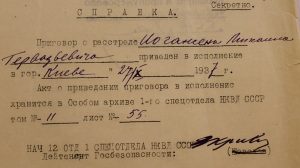
Maik Johansen was executed in Lukiyanivka Prison in Kyiv on October 27, 1937. He was posthumously rehabilitated after Stalin’s death.

